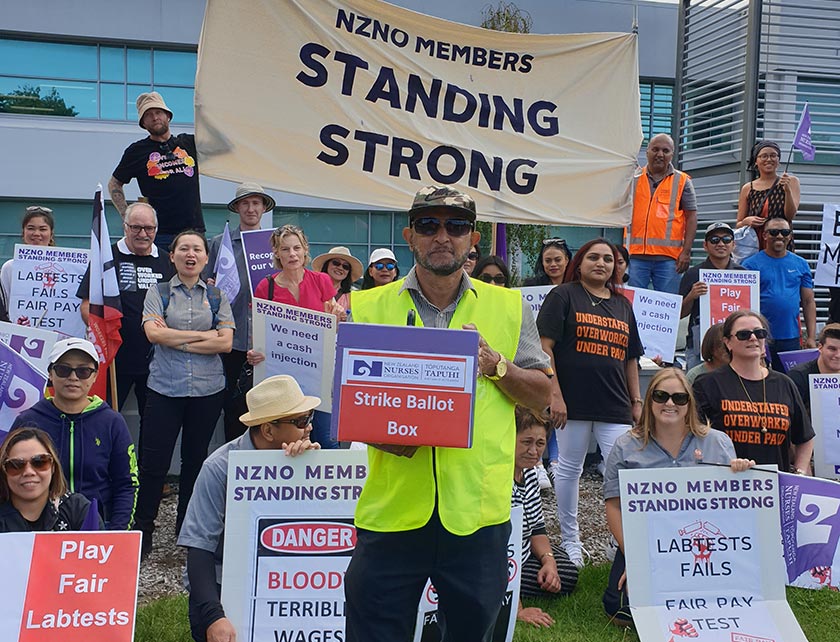After negotiations since September last year, mediation in late January and two rejected offers, last month members voted overwhelmingly in favour of strike action. A large group of members also picketed outside Labtests head office in Mt Wellington, Auckland, last month.
Last month, the employer came back with an improved offer, including full back pay to July 1, 2020, conditional on the withdrawal of the strike notice, organiser Sarah Barker said. But the improved offer does not bring starting rates up to the living wage.
The collective agreement covers phlebotomists. “This workforce is a highly skilled, regulated and predominantly female workforce. They are frontline health-care workers, whose work is vital to patient treatment. They are understaffed and under pressure. Their low pay rates are a reflection of the historical undervaluing of women’s work,” she said.
Barker said the 150 members were highly engaged in all actions and votes.
Labtests Auckland is part of the Asia Pacific Healthcare Group, the country’s largest human and veterinary pathology network, operating as Labtests Auckland, Northland Pathology, Taranaki Pathology Services, Southern Community Laboratories, Wellington SCL, Canterbury SCL, Medlab South and Gribbles Veterinary Pathology. It also provides pathology services to 13 district health boards. It has more than 2000 staff operating across its 25 laboratories and 150 collection centres. It conducts around one third of all COVID-19 testing in New Zealand.
As part of its Auckland Regional District Health Boards contract, Labtests Auckland provides a range of pathology services for all GPs, public hospital clinics and midwives for diagnostic testing for eligible patients.
Public money to private company
Barker questioned why public money was being spent on profit-driven companies, such as Labtests. “If public money is to be spent on profit-driven companies, then the expectation should be that those companies pay the living wage as the starting rate.”



